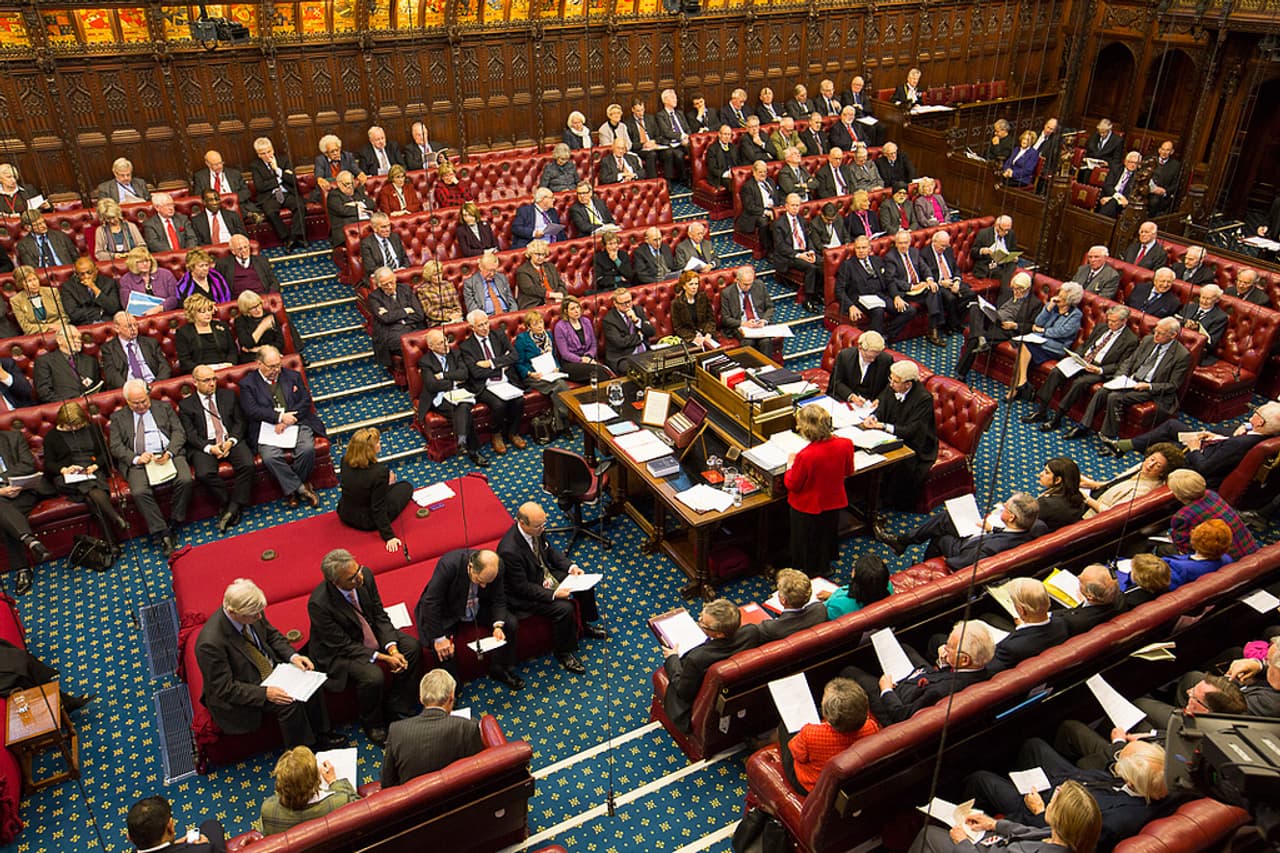
Prominent House of Lords lawyers oppose Theresa May’s citizenship-stripping plans
Peers have expressed grave concerns about Theresa May’s proposal (Photo: Roger Harris/House of Lords)
The Home Secretary’s proposed expansion to controversial citizenship-stripping powers has encountered mounting opposition in the House of Lords.
Some of the most prominent lawyers in the Lords – including a former Director of Public Prosecutions and a former Supreme Court judge – have joined forces to table an amendment that would force the government to submit its plans to extra scrutiny.
Meanwhile, the government has again refused to provide information to a parliamentary committee on how the current powers are used.
– Lord Pannick QC
The Immigration Bill contains a clause allowing the Home Secretary to revoke the British nationality of people she believes pose a risk to the country, even if it makes them stateless. Under current laws, she can only act if the individual holds another nationality and so will not be left stateless.
The government argues that the proposal is essential for protecting national security. The clause was introduced at the last minute of the Bill’s passage through the House of Commons, and it passed with a huge majority.
But in the House of Lords, the clause has become one of the Bill’s most controversial aspects. Peers expressed profound concerns with its potential consequences.
‘The United Kingdom has no right and no power to require any other state to accept its outcasts and, as a matter of international law, it will be obliged to readmit them if no other state is prepared to allow them to remain,’ said Baroness Kennedy QC, who represents former British citizen Mahdi Hashi in his appeal against the loss of his citizenship.
Related story – Missing British-Somali man reappears in New York court
‘Moreover, deprivation of citizenship is not a viable alternative to the responsible prosecution of alleged criminal conduct. Citizenship is not a privilege, but a protected legal status,’ she added.
Home Office minister Lord Taylor agreed to meet with peers to discuss their misgivings.
But as the Bill reaches report stage, crossbencher Lord Pannick QC has tabled a new amendment calling for the proposed expansion of citizenship-stripping powers to be delayed until it has been scrutinised by a committee of both peers and MPs.
Pannick told the Bureau: ‘The minister has been made aware of our concerns about the Clause. As yet, we have had no response which meets those concerns. The amendment seems the best way of addressing the concerns.’
The amendment is co-signed by Lord Macdonald of River Glen, a Liberal Democrat peer and former Director of Public Prosecutions, and Lord Brown of Eaton-under-Heywood, a crossbencher and former Supreme Court judge who served for years on the government’s intelligence watchdogs. The Bill also has Labour backing – Baroness Smith of Basildon, the opposition home affairs spokeswoman, is a fellow co-signatory.
‘The amendment is based upon the real concern that there was no pre-legislative scrutiny, there was no public consultation, prior to the amendment being introduced at the very late stage in the Commons. That’s why we’re suggesting it be sent off to a joint committee,’ Pannick told the Bureau.
A committee of both houses is a relatively unusual step. It would delay the government’s plans by months and is expected to include a public consultation. The committee could also pressure the Home Office into making disclosures that it has so far resisted.
Last week the government again refused to reveal to peers and MPs how often the current deprivation of citizenship laws had been used while individuals were overseas. The Joint Committee on Human Rights, which wrote a legislative scrutiny report that was highly critical of the clause, called on the government to disclose the figures so that parliament could see how the powers are currently used.
The Bureau has identified 17 of the 27 individuals who have lost their citizenship since 2006 on national security grounds, under the current laws. This reveals a strong tendency to act while the individual is abroad: 15 of the 17 identified lost their citizenship while overseas. In one case as the Bureau has reported, the government deliberately waited until the individual was out of the country before acting.
Related story – Home Secretary waited until terror suspect was abroad before stripping citizenship
In a response to the Joint Committee’s report published last week, the Home Office wrote: ‘for reasons of national security and operational effectiveness, we are unable to put details on the number of individuals who were abroad at the time they were deprived’.
It also declined to indicate how many decisions were made based on ‘closed materials’ – evidence that is kept secret from the affected individual and their lawyers in any appeals.
The Home Office response said: ‘The purpose of the new power is not to target naturalised people who are abroad.’ It added that the power will be used both on those abroad and those in the UK.
The government argues that some of those affected may be able to gain another nationality after losing their British citizenship.
Lord Pannick’s amendment is expected to be voted on in a session on Thursday at the earliest, but peers have indicated to the Bureau it is likely to be next Monday.
Clare Algar, executive director of legal charity Reprieve, said: ‘These plans would give one politician the power to impose a form of medieval exile on British citizens, without even needing the sign-off of any court. Similar proposals in the US were described by that country’s Supreme Court as “more primitive than torture”.
‘They would also create a two-tier system of citizenship… The Lords must reject these dangerous and ill-thought-out proposals.’
Follow Alice Ross on Twitter. Sign up for email updates from the Citizenship Revoked investigation.




